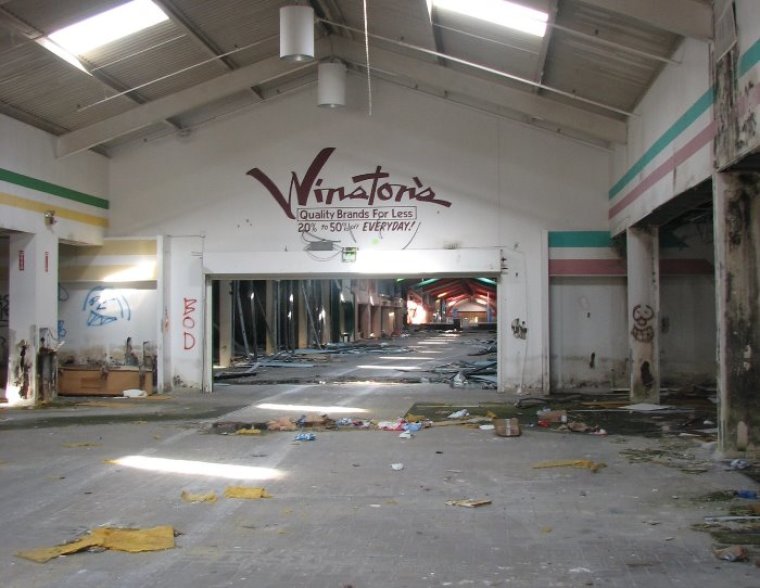

A recent article provides chapter and verse to the 300 shopping malls that have closed their doors and the essential background to these closures has been the huge impact online shopping continues to exhibit in the economy.
The article cited comments from those associated with "dead malls" - one said, "It's not just the dilapidated silence of these once-gleaming beacons of the American dream, but a more sinister truth they convey."
There are more than 300 shopping malls abandoned or failing scattered across 45 of the USA's 50 states, according to Deadmalls.com. Sadly, the claim is that when you look outside these empty malls you usually see entire towns that are abandoned and in most cases the malls are actually the last thing to go. Entire neighbourhoods that have fallen on hard economic times.
Some observers have pinned the decline of the American mall on the rise of online shopping, but the reality is also that the US is suffering a painful adjustment from a glut of retail space. The massive expansion of shopping malls in the '70s and '80s made the US the most over retailed country on earth with more than twice the per capita retail space of many other western countries.
With many malls now falling victim to the economic slowdown, the crumbling buildings are too expensive to demolish and redevelop. Malls in effect helped build neighbourhoods so for them to go under and close down is a really big deal.

Online Shopping
It would be ludicrous to suggest all these malls simply closed because of retail downturn across the economy. Rather the nature of purchasing has changed, and there is a direct route to online shopping which has had an enormous impact on retail shop front ventures.
Think of these purchases that were mainstream retail shop front -
Shoes
Clothes
Handbags
Furniture
Kitchen utensils
Socks
Brooms
Brushes
Accessories
- and thousands of other household items let alone outdoors items. But none of this is all that new. Motor vehicle spare parts have always been items sought from wholesale outlets to the motor vehicle repairers. It has simply gone from the industrial setting to the house itself.

Possibilities
Take yourself back 30 years when churches of all persuasions bought land what was then outside the city suburbs, and built schools, hospitals, retirement villages, all purpose churches and the like. There were initial gasps of unbelief, but then developers began to built homes.
A few years ago a church purchased a disused aircraft carrier and as much as a novelty, but practically it purposed to be a remarkable facility for church life in all its forms.
So why not an enterprising pastor take on one of the dead shopping malls – lots of space, great ambience, rooms galore – set up a school, play groups, youth program space, a hospital, a retirement village, a disabilities workshops – become self sufficient as much as possible.
There is plenty of car parking and many access entrances, the ideas are endless so as to make good inventive and insightful use of the facilities. Local municipalities (Shire Councils) would be delighted to see such edifices re-gauged and put back to community benefit. Stranger things have happened.
It all depends on imagination and the Spirit of the Lord touching the ideas and projects.

Dr Mark Tronson is a Baptist minister (retired) who served as the Australian cricket team chaplain for 17 years (2000 ret) and established Life After Cricket in 2001. He was recognised by the Olympic Ministry Medal in 2009 presented by Carl Lewis Olympian of the Century. He mentors young writers and has written 24 books, and enjoys writing. He is married to Delma, with four adult children and grand-children.
Mark Tronson's archive of articles can be viewed at http://www.pressserviceinternational.org/mark-tronson.html